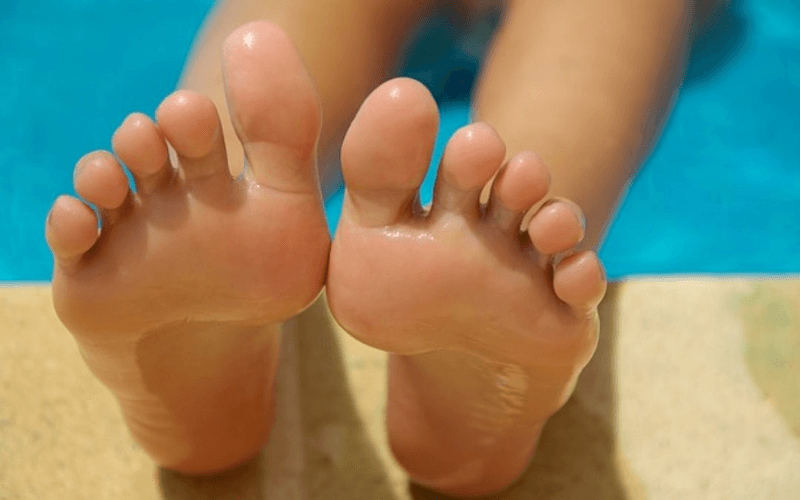Imagine this: Your child comes home from a fun day at the swimming pool, only to wake up a few weeks later with a painful spot on their foot. As a parent, you worry and wonder what it could be. It might just be a verruca, a common but often misunderstood foot issue. In this article, we’ll explore the most effective treatments for verrucae, ensuring your child’s feet stay healthy and pain-free.
What Are Verrucae?
Verrucae, also known as plantar warts, are caused by specific strains of the Human Papilloma Virus (HPV). You can be infected with HPV for weeks or months before a verruca appears, making it difficult to pinpoint where and when the infection occurred. Verrucae grow on the soles of the feet and toes, often causing irritation and discomfort. Moreover, they can become a persistent problem without effective verruca treatment.
How to Identify a Verruca
It can be tricky to distinguish verrucae from other foot issues like corns. Verrucae are rough, hard areas that are whitish with one or more black dots. Unlike other skin lesions, they do not follow the skin’s natural striations (the grooves on the sole of your foot). You can see photos of verrucae on our verruca treatment page.
If you’re unsure whether you have a verruca, consult one of our podiatrists for a proper diagnosis.
Importance of Treating Your Verruca Swiftly
Treating a verruca promptly is crucial. One verruca can multiply into clusters called mosaic warts, making treatment more complicated. Verrucae can cause significant discomfort, especially when they form on weight-bearing areas of the foot, leading to a buildup of hard, dead skin cells. They can also lead to social embarrassment, discouraging your child from showing their feet.
Verrucae are highly contagious, spreading through contact with contaminated skin, objects like socks and towels, and surfaces such as showers and swimming pool tiles. This makes quick and effective treatment even more essential.
Specialist Verruca Treatment at London Clinics
Over-the-counter treatments for verrucae are often insufficient. At Feet By Pody, we offer specialist treatments tailored to your child’s needs at our modern, hygienic clinics in London. Here are some of the advanced treatment options we provide:
- Acid Crystals: This method kills infected skin cells, allowing them to be removed effectively.
- Cryotherapy: Using the latest equipment, we freeze the infected skin cells, causing them to rupture and prompting the immune system to fight off the virus.
- Dry needling: Ideal for stubborn verrucae clusters, this treatment creates a pathway from the viral tissue to adipose tissue, enabling the immune system to attack the virus directly. Local anesthesia ensures the procedure is as painless as possible.
If these treatments aren’t suitable, we can explore alternative options tailored to your child’s specific needs.
Preventing Verrucae
While prevention is not always possible, there are steps you can take to reduce the risk of verrucae. Encourage your child to:
- Wear flip-flops in communal areas like pools and locker rooms.
- Keep their feet clean and dry.
- Avoid sharing towels, socks, and shoes with others.
Book Your Treatment Today
Verrucae are a common issue, but there’s no need for concern or embarrassment. With the right treatment, you can ensure your child’s feet are healthy and free from discomfort.
For expert treatment to eliminate your verruca at a London clinic, please call Feet By Pody today on 0207 099 6657 or book an appointment online.

